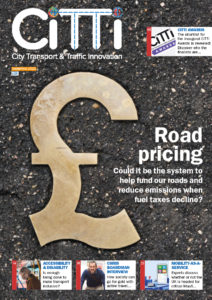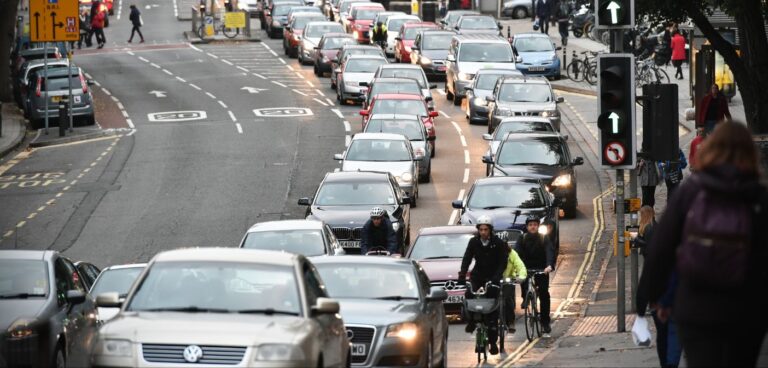Nearly half of 3,000 people surveyed in the UK support replacing fuel duty and vehicle excise duty with a pay-as-you-drive road user charging scheme and less than a fifth oppose the idea, according to a report from Campaign for Better Transport.
Pay-as-you-drive: the British public’s views on vehicle taxation reform found that three out of five people (60%) believe vehicle taxation needs reforming, with 49% supporting the idea of a road-pricing scheme compared to 18% opposing it.
What’s more, support for reform reportedly grew among those surveyed by eight percentage points (from 41% to 49%) once they were presented with options for how such a scheme could be delivered.
Paul Tuohy, chief executive of Campaign for Better Transport, said: “The need to reform vehicle taxation is becoming increasingly clear as we rightly move away from petrol and diesel vehicles in order to tackle climate change.
“What this research shows is that road pricing, far from being an unacceptable concept to the public, is in fact one that the majority of people believe can be implemented fairly and could in fact save most drivers money.”

The report found that people thought a “well-designed” pay-as-you-drive system would be a fairer and more transparent way to tax motoring because it would include EV drivers and could ensure people who drive less, pay less.
Those polled thought a scheme that included measures such as a tax-free mileage allowance would enable targeted tax cuts to specific groups, such as those who have to drive for work, and would mean people who live in places where there are no public transport alternatives wouldn’t be unfairly penalised, either through a higher tax-free allowance or being charged a lower rate.
Furthermore, Campaign for Better Transport said a pay-as-you-drive scheme would have the added benefit of bringing an immediate tax cut to drivers with the removal of VAT on fuel duty.
The report concludes that a pay-as-you-drive system could progress in stages from a pilot for EVs, to replacing fuel duty and vehicle excise duty with a ‘smart’ scheme with a varied pricing structure, which would replace pre-existing local road charging schemes and allow people to opt out and pay a higher set annual charge instead.
Kate Jennings, director of policy at Logistics UK, welcomed the report but said any road charging policy must be developed in close consultation with the logistics sector to ensure fairness and transparency between government and business.
“Logistics businesses already operate on extremely narrow margins, so any system must be applied to all vehicles and phased in carefully for the avoidance of double taxation,” said Jennings.





